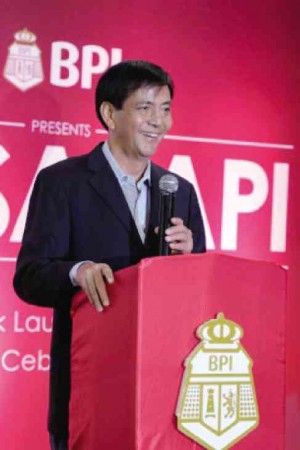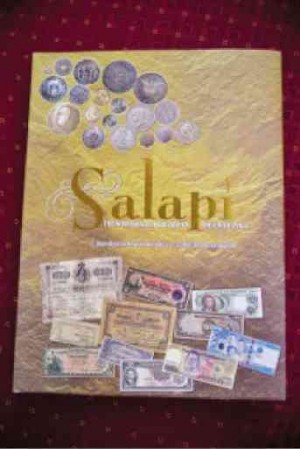PH heritage as a springboard to the future
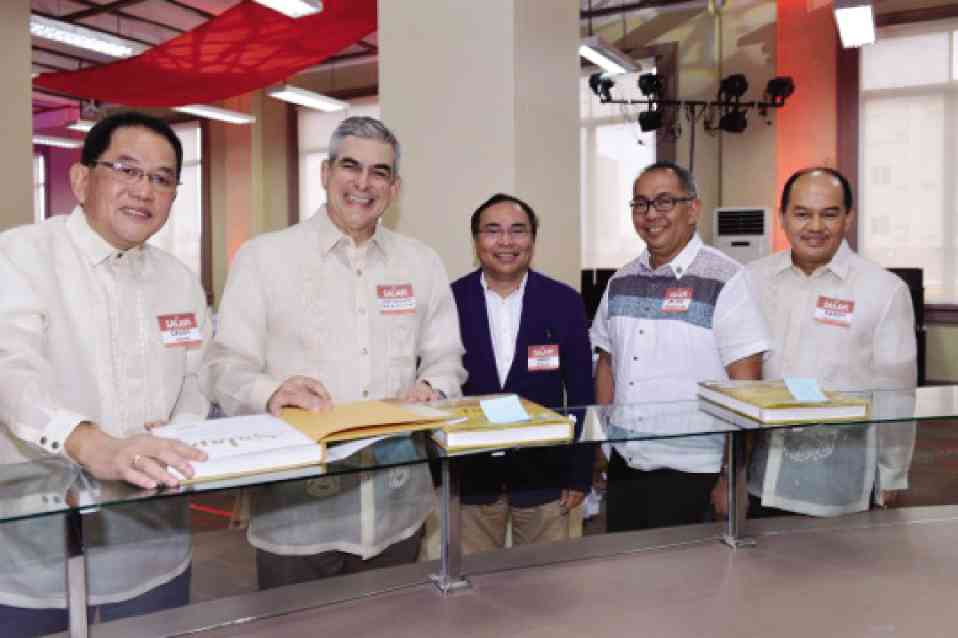
(FROM LEFT) Salapi co-author and branch business manager Carlos L. Apuhin, BPI chair Jaime Augusto Zobel de Ayala, Salapi co-author Jose Eleazar Bersales, University of San Carlos vice president Fr. Generoso Rebayla Jr. SVD, and BPI Foundation executive director Florendo G. Maranan
When your firm belongs to one of the oldest conglomerates in the country—when your bank was established long before the Philippines even declared independence—you have good reason to focus on history.
So it is for the Bank of the Philippine Islands which has once more reaffirmed its thrust of leveraging off its past to propel it into the future.
The Ayala-controlled bank recently unveiled two projects in support of this thrust. The first is the launch of a unique coffee table book entitled Salapi, which features the story of the development of money and financial transactions in the country—a history that began long before the Spaniards set foot on local shores.
The second is the inauguration of the BPI Library located at the history heart of Cebu City, underscoring the commitment of the bank and of the entire Ayala group of companies to improving the state of education in the Philippines.
“BPI is a bank that reflects on the past but is, at the same time, very focused on the future,” says BPI chair Jaime Augusto Zobel de Ayala during the event to launch both projects in Cebu City. “Education has always been very close to the heart of the Ayala group for many, many years. It is something we support in many ways.”
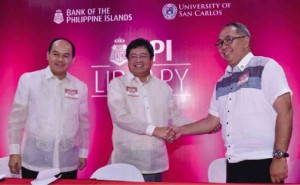
BPI Foundation executive director Florendo G. Maranan, BPI president Cezar Consing, University of San Carlos vice president Fr. Generoso Rebayla Jr.
The book, Salapi, is the first of its kind ever to be produced in the country, written by Jose Eleazar Reynes Bernales and Carlos Ledesma Apuhin, who contributed photographs as well with Fr. Generoso Rebuca Rebayla Jr.
The title comes from the Visayan and Tagalog term referring to all forms of money. The 280-page volume reveals, in full color and detail, the fascinating history and evolution behind the coins and banknotes of the Philippines.
With images from the rare collections of BPI, the Bangko Sentral ng Pilipinas Money Museum and the private archives of a handful of local and foreign collectors, the book tells the story of the country from a unique perspective: As seen in the kinds of money that has been used and exchanged over the centuries.
From the barter currencies that made the archipelago a popular destination among Chinese and Arab merchants as well as Asian traders in the pre-colonial era, to the introduction and widespread use of coinage in Spanish colonial times, to the changing face of the Philippine peso today, it is a comprehensive look at how money has evolved with the times and how it has come to reflect the nation’s pulse and economy.
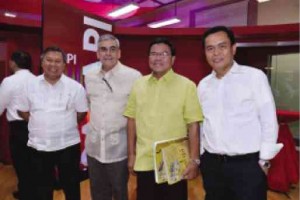
AYALA Land SVP Emilio J. Tumbocon, BPI chair Jaime Augusto Zobel de Ayala, Cebu City Vice Mayor Edgardo Labella, Cebu Holdings president Francis O. Monera
The book also contains inside stories and insights on how coins and banknotes are designed and produced, making this book a prized gem for numismatic enthusiasts everywhere, as well as anyone who is interested in taking a look at how currency can shape and define a country.
The event’s other highlight was the launch of the BPI Library-Cebu, a project of BPI and the BPI Foundation, in cooperation with the Ayala Foundation.
Upon the request of Mayor Michael Rama, BPI donated the topmost area of the bank’s main branch, centrally located at the corner of Magallanes and P. Burgos Streets, to be used as Cebu’s first ever business library, available for free and open to the public.
The building itself is an architectural landmark, a neo-classical structure designed by noted architect Juan Arellano. The high ceilings and tall glass windows will serve as a repository for shelves of reference books on economics, finance, management, and trade, including a section especially dedicated to Cebu culture and a designated reading area for children.
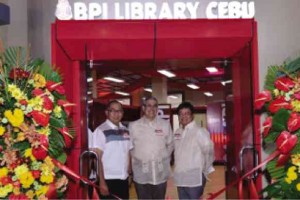
UNIVERSITY of San Carlos vice president Fr. Generoso Rebayla Jr, BPI chair Jaime Augusto Zobel de Ayala, BPI president Cezar Consing
With the concept and design by the Filipinas Heritage Library—and access to the University of San Carlos’ library system—it will be a valuable resource for Cebu’s current and future business leaders, as well as serve as a venue for regular workshops to update the community on the goings-on in the business and finance world.
The partnership with the University of San Carlos was sealed with a formal signing of a memorandum of agreement during the event.
“You really can’t put a price on investments like these two projects,” says BPI president Bong Consing. “Whatever we invested here is worth it. Money can’t buy the value that we’re adding here.”
Consing adds that BPI will work to distribute the book ‘Salapi’ as widely as possible “to places where it could really add value.”
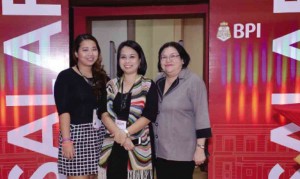
BPI PR, publicity and corporate communications team Eunice Oquialda, Leah del Castillo, and Rita Canchela
“We want these in schools and libraries,” he says. “There’s a rich history here of currency or money that many should know about.”
“BPI and all of us who work in the bank are very privileged to be just cogs in the wheel that that has been rolling on since the issuance of the very first currency notes of the Philippines,” Zobel says.
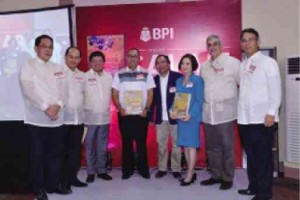
SALAPI co-author and branch business manager Carlos L. Apuhin (left), BPI Foundation executive director Florendo G. Maranan, BPI president Cezar P. Consing, University of San Carlos vice president Fr. Generoso Rebayla Jr. SVD, Salapi co-author Jose Eleazar Bersales, BSP regional director Atty. Ma. Lux Bercilles, BPI chair Mr. Jaime Augusto Zobel de Ayala and former BPI president Aurelio Montinola III.
“Because of this, we feel it is our duty to remind people that the history of the bank is intertwined with the economic history of the country—the very interesting economic and social history that makes us the people that we are today,” he concluded.
Indeed, for Zobel—who heads the sprawling Ayala conglomerate—mixing education with a sense of history, along with the values espoused by BPI, helps them “create something that’s lasting for the country and for the people.”











